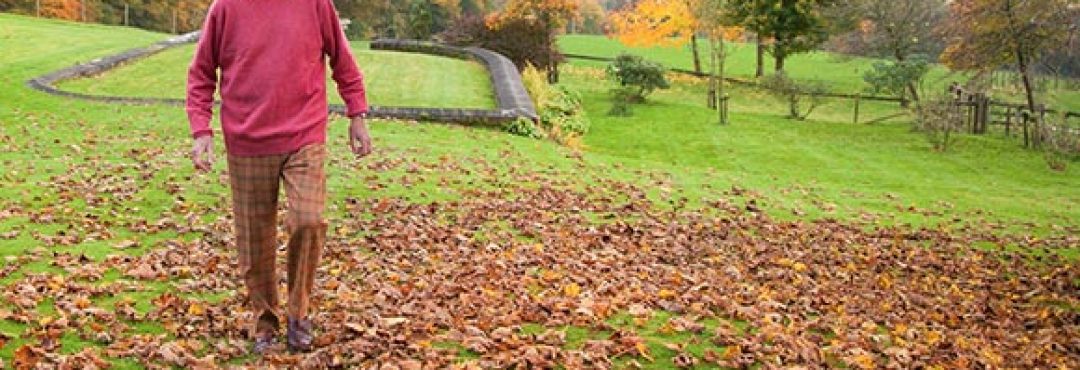"I first encountered TCV’s predecessor, the British Trust for Conservation Volunteers (BTCV), at an event organised by Professor David Bellamy where I learned about its important work to promote environmental conservation through practical tasks undertaken by volunteers.
But it wasn’t until 1987 that I came fully on board, when there was an opportunity to take on the Presidency of BTCV, which I did gladly. Later that year, the English countryside was devastated by the Great Storm, the effect of which was truly shocking: 15 million trees were felled at a stroke; 4 million cubic metres of timber was littered over roads and railways; hundreds of thousands were left without power for two weeks; and 22 people lost their lives.
BTCV played an important role in the emergency clear-up – 4,000 volunteers worked on more than 330 sites in the storm-ravaged areas.
I have many vivid memories of the volunteers I met during my Presidency and their wonderful projects, which ranged from the repair of stone footpaths in the Yorkshire Dales to heather regeneration in Snowdonia to orchid conservation in the Chilterns. The common link between all of them was the unbundled enthusiasm and commitment of the volunteers, and their ability to share and pass this on to others.
Since then, I have followed TCV’s progress with great admiration and I am delighted that it has become one of the UK’s largest and most influential charities. Its vision to create healthier and happier communities for everyone, by connecting people with the natural environment, is needed now more than ever.
As a member of the House of Lords, I was keen to speak up on environmental issues in parliamentary debates. Inspired by the devastating impact the Great Storm had on our countryside, I joined the House of Lords European Commission Environment Sub-committee, which undertook many important inquiries on environmental topics including rural policies, forestry in the UK and the tropics and management of hazardous wastes.
In the 1990s there was a raft of environmental legislation on which I was active, including on the privatisation of the water, electricity and coal industries. My work on all these privatisation and deregulation bills had a common strand: the need I felt to establish statutory environmental safeguards and explicit environmental duties on the newly created public bodies. During these years of campaigning, “green” principles were of primary importance.
I was involved with these and other environmental causes but my work on National Parks is amongst the most memorable and rewarding, as it helped to secure enduring protection for these special places and greater independence from local government.
Working with Peers from all sides of the House, and charities including the then Council for National Parks and the Campaign to Protect Rural England, we succeeded in leaving behind a legacy for the Parks that still holds firm today: new purposes; new independent bodies to run them and a strong consensus about their protection.
Of course, we are now in unchartered waters as the Government ponders how environmental and countryside legislation will evolve post-Brexit. Without the policy drivers provided by the European Union, there are understandable concerns that some of our most important protections could be lost or watered down.
As a lifelong environmentalist, I hold a more optimistic view, which is that we must seize this moment as an opportunity to make sure that the environment is centre-stage in government deliberations. We have done this before without the prodding of our European partners, through far-sighted legislation such as the 1949 National Parks and Access to the Countryside Act, which set up National Parks, paved the way for the establishment of nature reserves and brought enhanced public access to the countryside. Similarly, and more recently, the 2009 Marine and Coastal Access Act brought stronger protection for our seas and the promise of a continuous path around the coastline of England and Wales, which is due to be completed by 2020.
Of course, none of these achievements would have been possible without the foresight, dedication and efforts of many of us in the voluntary sector. Our collective role in working for such protections has never been more important.
Our green spaces face many challenges and must be recognised for the vital role they play in supporting both the environment and also people’s health and wellbeing. Funding and support for these spaces is becoming increasingly competitive and there is constant pressure for development of housing, transport and other infrastructure.
TCV’s work creating and managing community green spaces therefore remains of critical importance. And I for one am enormously grateful to all of the volunteers who work so hard to bring people and places together to create healthier and happier communities for everyone."
Lord Norrie
Lord Norrie, former BTCV President, is an environmentalist whose work for greener legislation is explored in his new memoir, Portals of Discovery (Book Guild). This book provides a fascinating insight into George’s work to protect National Parks not just for recreation but as a continuing legacy of natural beauty and inspiration.

